
Even though there is a considerable demand for software developers, many employers and recruiters can’t find qualified individuals.
One reason why employers are having trouble with this is not knowing which traits to prioritize when looking for a candidate.
If you are in a similar position and want to bring in a new software developer for your team, read on.
We will cover 14 qualities you might want to consider when making your next hiring decision.
Table of Contents
A generally positive attitude
One crucial trait that you should look for in a developer is a positive attitude.
Software developers sometimes have to work on tedious projects with strict deadlines, so the way they approach these tasks and the often difficult conditions they have to tackle them in can impact the end result.
By finding someone that takes on their duties in an optimistic manner, you can be more certain that the job will be done well and on time.
The statistics back up these claims. Employees who are positive and happy are:
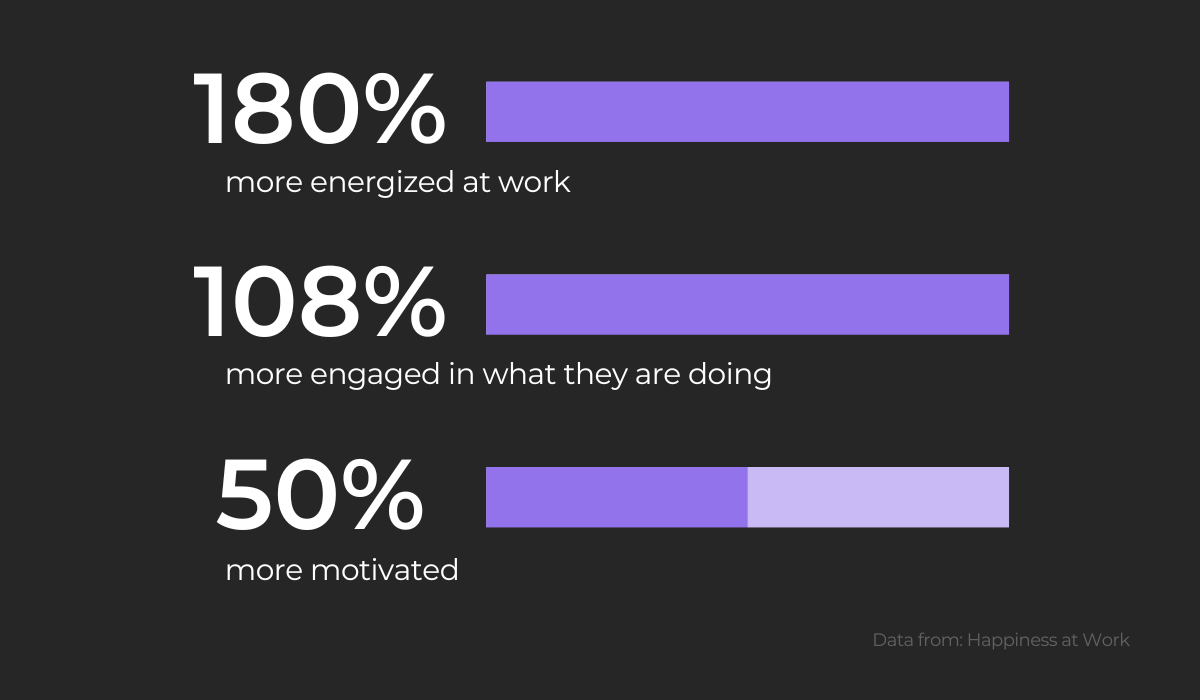
Developers with a positive mindset are more likely to approach assignments with commitment, work diligently, and be motivated to put in additional effort to ensure the job is done correctly.
A passion for the profession
While conducting an interview with a candidate, you want to get a feel for what they’re passionate about.
Jeff Atwood, the co-founder of Stack Overflow and Stack Exchange, says that money isn’t the primary concern for developers with a passion for their jobs.
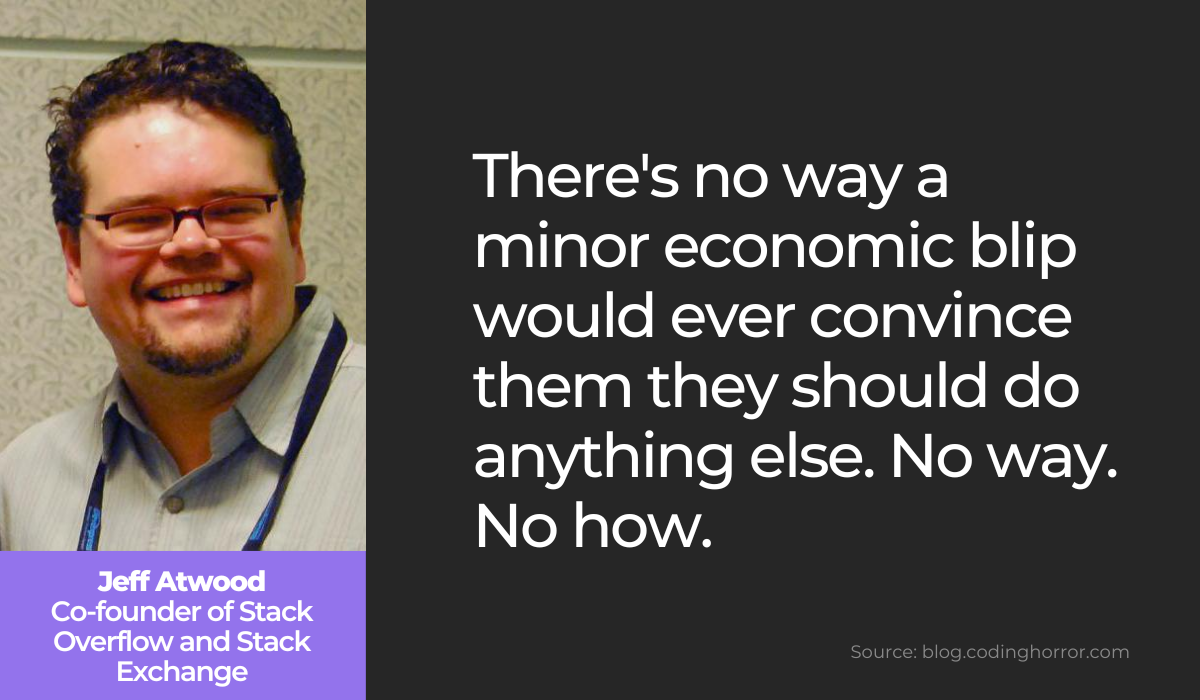
Developers who are driven have a genuine love for their work and are constantly motivated to learn and improve even in their free time.
They seek out challenges, they are eager to find solutions to new and creative problems—often taking up personal projects or contributing to open-source projects.
This passion drives their curiosity, keeping them engaged, and, as a result, they are more likely to perform better.
A great level of dedication
Even the most knowledgeable and skilled developers can be the wrong choice for your team if they are not dedicated to their work.
A committed employee will have a strong sense of loyalty and follow through on duties on time, often going the extra mile.

Get unreal data to fix real issues in your app & web.
Although dedication is difficult to evaluate before the candidate starts working, you can question them about their previous experiences.
Does the candidate talk about their commitment to finding a solution to a complex problem, thinking proactively, and taking initiative—taking on work before being asked?
If so, you might have found a dedicated software developer.
Values that fit the company culture
Another thing to look for is an alignment of values between the candidate and your workplace culture.
The right developer should be an excellent cultural fit that upholds and promotes the company’s values in their work and personality.
And this is very important as most failed hires are the result of poor cultural fit.
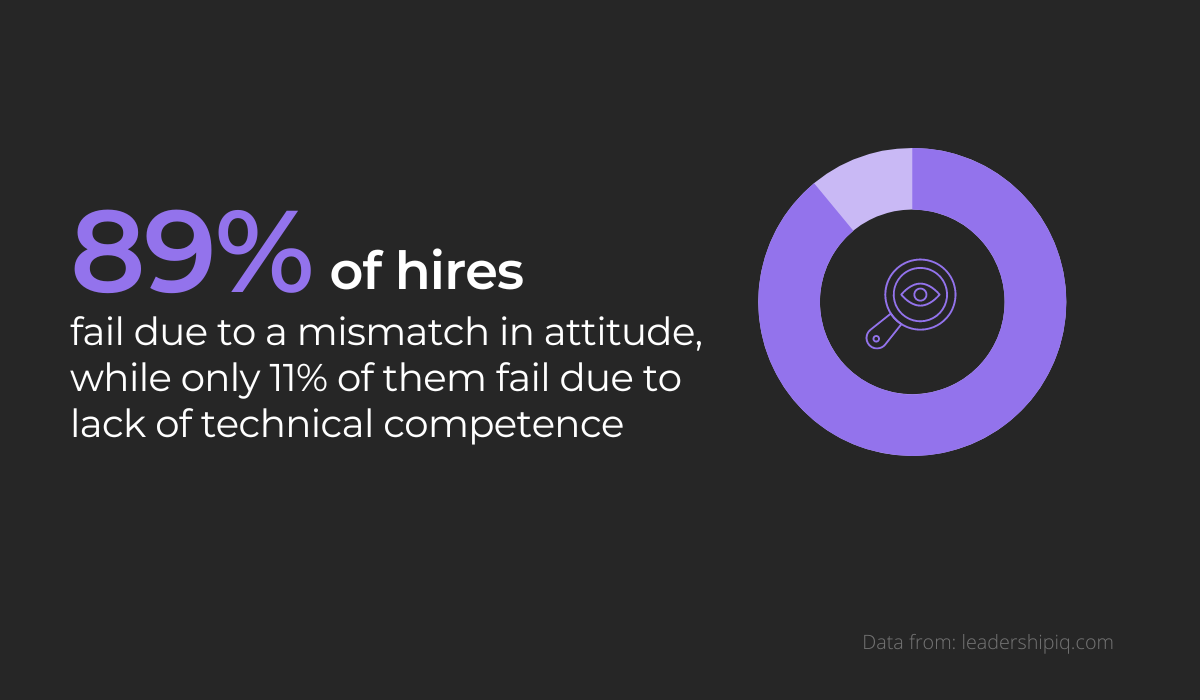
With this in mind, you can gauge whether a candidate will be a good cultural fit by using some of these questions:
- Which management style brings out the best in you?
- What expectations do you have of your supervisors?
- How do you feel about becoming friends with your co-workers?
- Describe your ideal workday.
- Can you give an example of a time you disagreed with your team lead, and how did you resolve the issue?
These will give you a general idea of whether the candidate’s expectations are in alignment with the culture you’re trying to foster in your team.
Technical skills are something you can train, but a person’s fundamental values are hard to change.
Knowledge of the industry
A suitable candidate is also focused on the bigger picture—your company and the larger context in which it exists.
Developers should know the industry as a whole, how your company fits in, and what services or products it provides.
Or as RethinkDB founder Slava Akhmechet wrote:
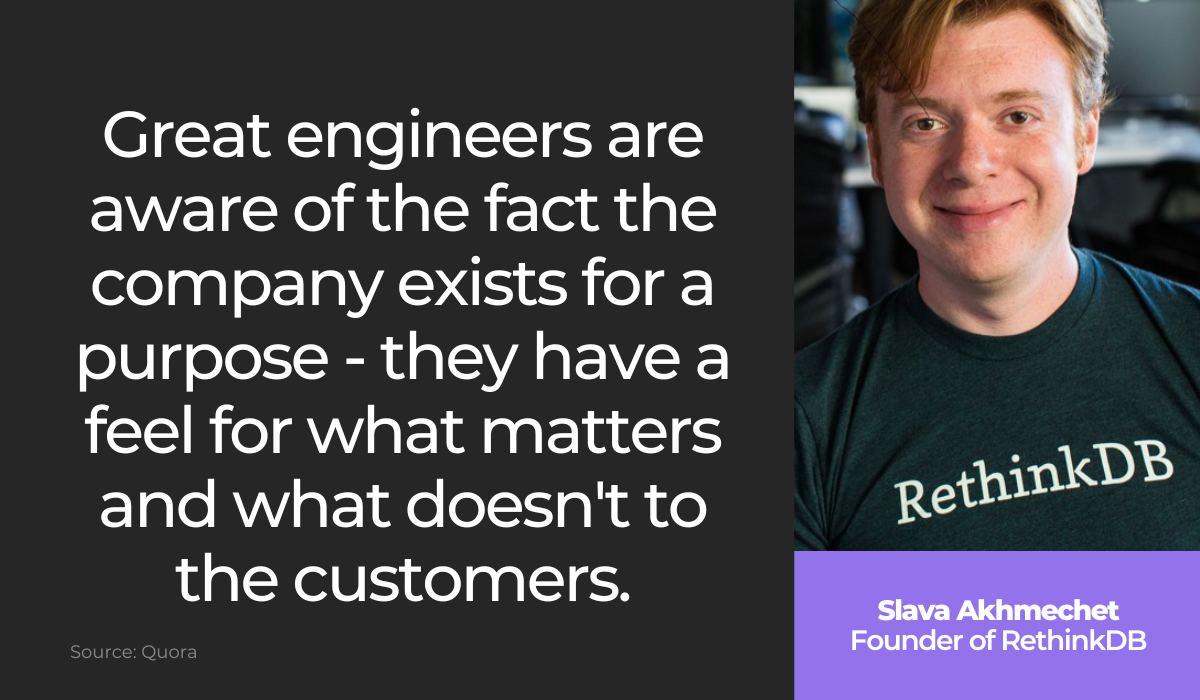
Having an understanding of what the company does gives developers a clear direction in which they operate, working with a strategy that can help them provide better quality work.
A good software developer isn’t just a coder—they are dedicated to the industry, coming up with relevant long-term plans and ideas.
Extensive technical experience
Good technical skills alone don’t make a good developer. But you also can’t expect exceptional results from candidates who don’t have the right skills for the job.
A good candidate will have a solid technical background, having worked long enough with several technologies that they have achieved a thorough grasp of them.
You can assess the candidate’s programming skills by using a service such as DevSkiller, for example.
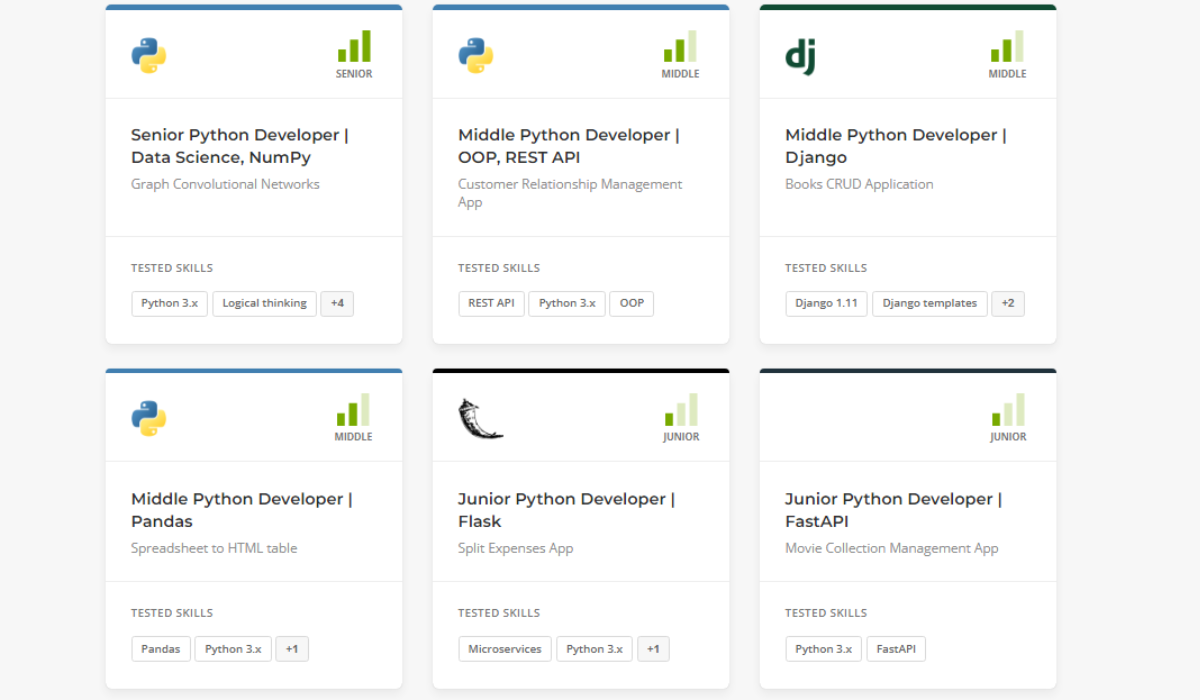
DevSkiller provides specialized tests in various coding languages and technologies. By testing the candidates, you can have a clearer picture of the kind of skills they bring to the table.
A candidate with extensive technical training can contribute more to your team by producing quality code following industry standards.
Using their experience, these developers will tend to arrive at the most effective solutions quickly.
Ability to learn from past failures
One crucial thing to assess is whether the candidate views past failures as a burden or a learning experience.
Experienced software developers will inevitably have had some failures along their journey.
Good developers use their mistakes to their benefit, understanding what they did wrong and finding ways to improve so that they prevent similar oversights in the future.
Fred Brooks, computer scientist, software engineer, and author of the famous book The Mythical Man-Month, stresses the value of failures.
He considers them even more important than successes, stating:
You can learn more from failure than success. In failure, you’re forced to find out what part did not work. But in success, you can believe everything you did was great, when in fact some parts may not have worked at all. Failure forces you to face reality.
The ability to learn from mistakes can mean that the developer doesn’t run from failure but embraces the opportunity for growth that it can bring.
An interest in continued learning
Being able to learn can signify that the candidate is motivated to improve and learn continuously.
Technology is constantly evolving, and software developers should stay ahead of the curve to be effective.
A great candidate will enjoy being up-to-date with new languages and technologies and be inspired to learn and understand them quickly.
Moreover, they will learn out of their interest—not because you, or the job, require it.
They will learn in various ways.
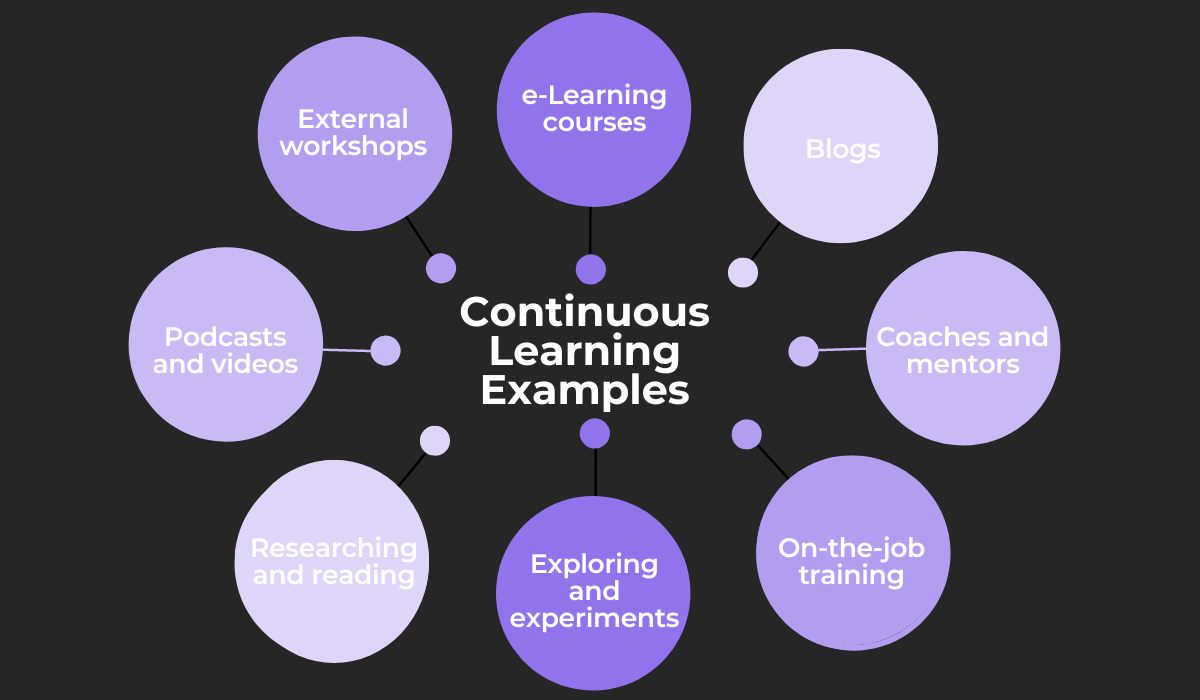
Great developers will know how to apply what they’ve learned to their work.
As a result, these individuals will be able to find answers to complex problems by coming up with innovative and cutting-edge solutions.
Readiness to leave their comfort zone
Even the best software developers can get comfortable with the technologies they’ve already mastered.
These individuals can get used to the control and security they get from their current skills and be reluctant to try out different things and continue learning.
A good trait for a candidate is the readiness to tackle new challenges and adapt to changes.
Developers should have a growth mindset and be prepared to leave their comfort zone.
A good sign that developers like to challenge themselves is when they do some of the following:
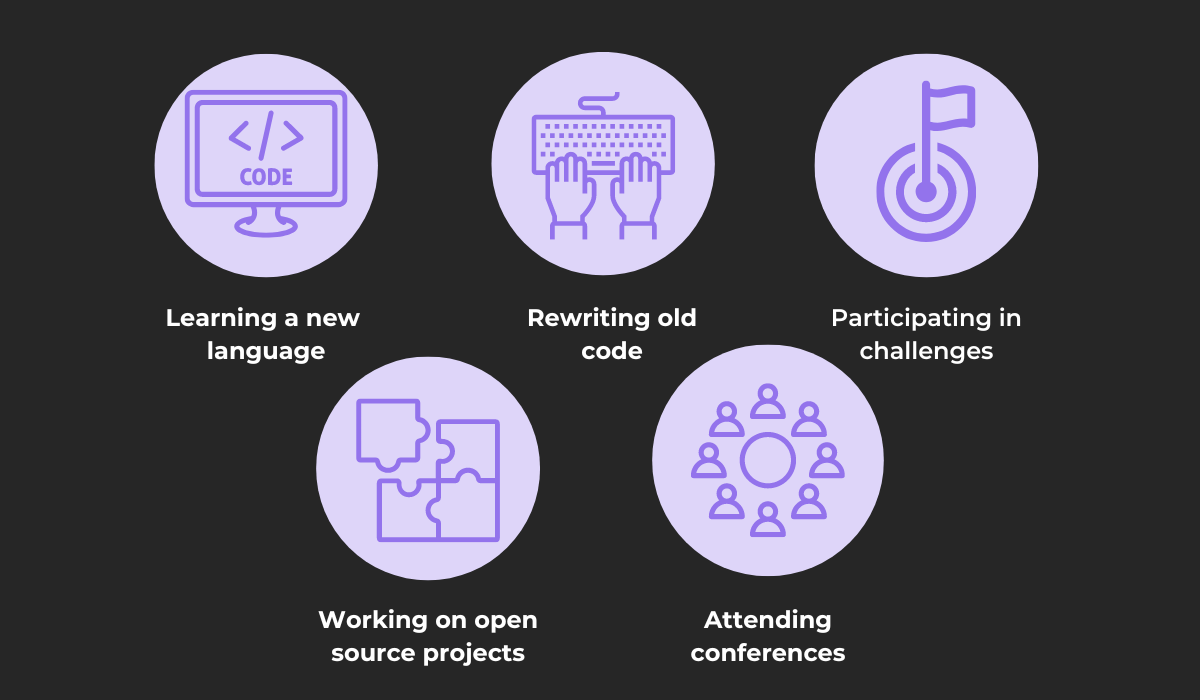
Through these activities, developers will try not to remain stagnant and stuck in a routine. Instead, they will strive to enrich their knowledge and experience.
This drive for continuous improvement is a necessary trait to have in an ever-changing environment such as software development.
Ability to manage time effectively
In a fast-paced environment such as the IT industry, software developers need good time-management skills.
Effective time management is essential to keep projects on schedule and deliver them by deadlines.
A good and effective developer should competently manage his or her assigned tasks in a reasonable amount of time, while also being punctual—in other words, arriving to meetings on time, not being late for work, etc.
Look for the following skills:
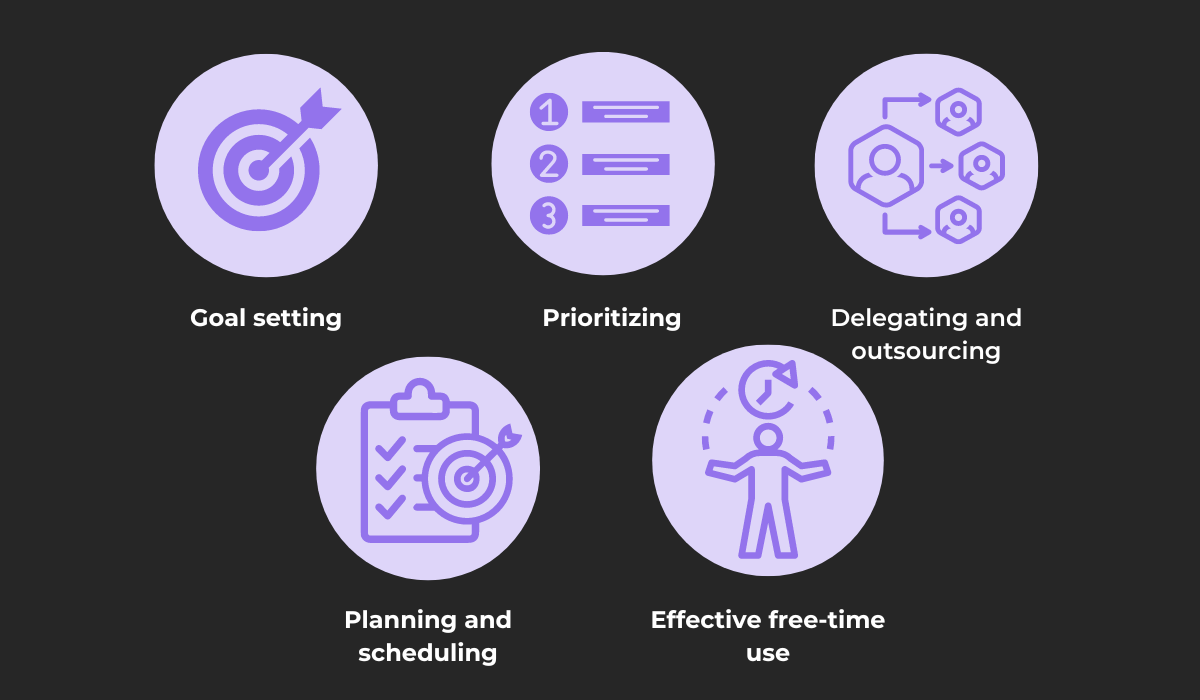
The developer who possesses these skills will know how much time they need to finish a task and how to communicate this effectively.
Their ability to communicate timelines will be helpful.
Knowing how your candidate manages time will enable you to better schedule their duties and have clearer expectations on when they will deliver.
An appreciation for testing
Software developers should want to test their work and want to deliver a successful outcome.
Testing is essential to ensure the product is bug-free and working according to specifications.
Developers and testers often have different perspectives:
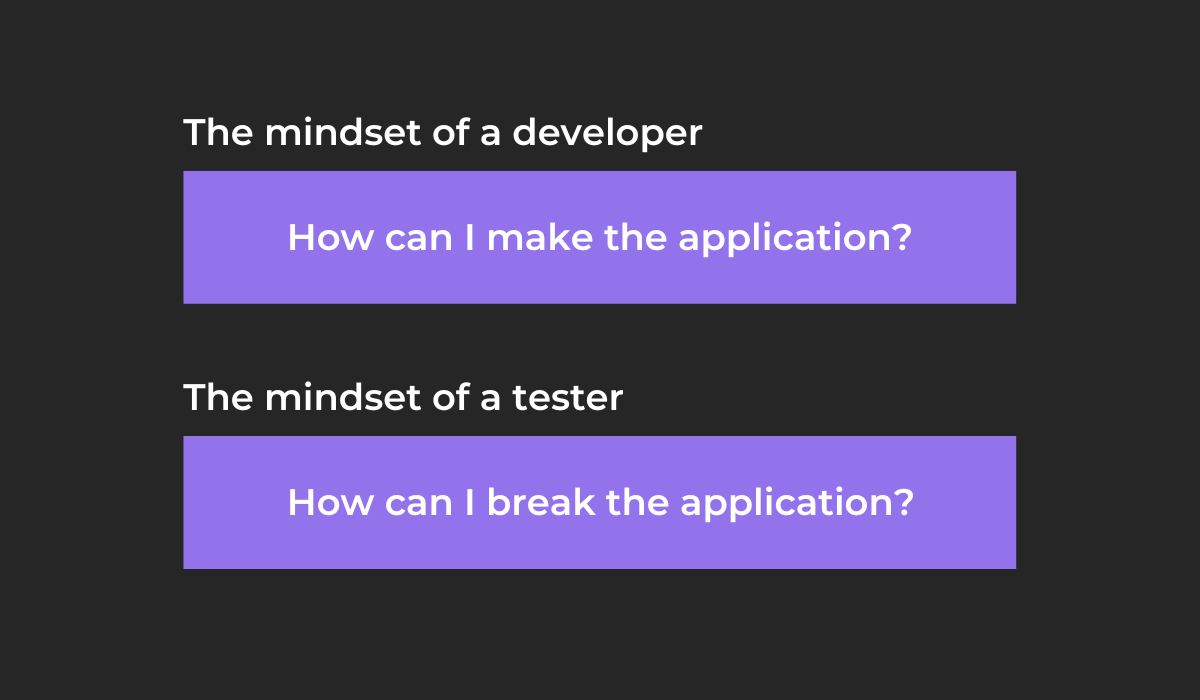
Finding a candidate that can view a piece of software through both lenses is a sign that the individual is a creative and divergent thinker.
Developers who appreciate testing can think similarly to the end-user, coming up with realistic scenarios on how users would use the app.
A tester’s mindset will enable developers to create useful tests or even “discover and eliminate bugs before they are coded,” as Boris Beizer, Ph.D., puts it.
A positive view of teamwork
Another quality you should try to find in a candidate is their ability to work in a team.
Great software developers should be capable of having friendly and fruitful interactions with colleagues. They will easily collaborate with diverse teams while avoiding unnecessary conflicts.
These developers will share their expertise with teammates, helping them whenever there is an issue.
Team players will also be open to receiving feedback and criticism without letting pride get in the way.
As Adam Grant, organizational psychologist and bestselling author, found—the best candidates are humble and keep their egos in check while working with the rest of the team.
Here are some other characteristics you can try to find:
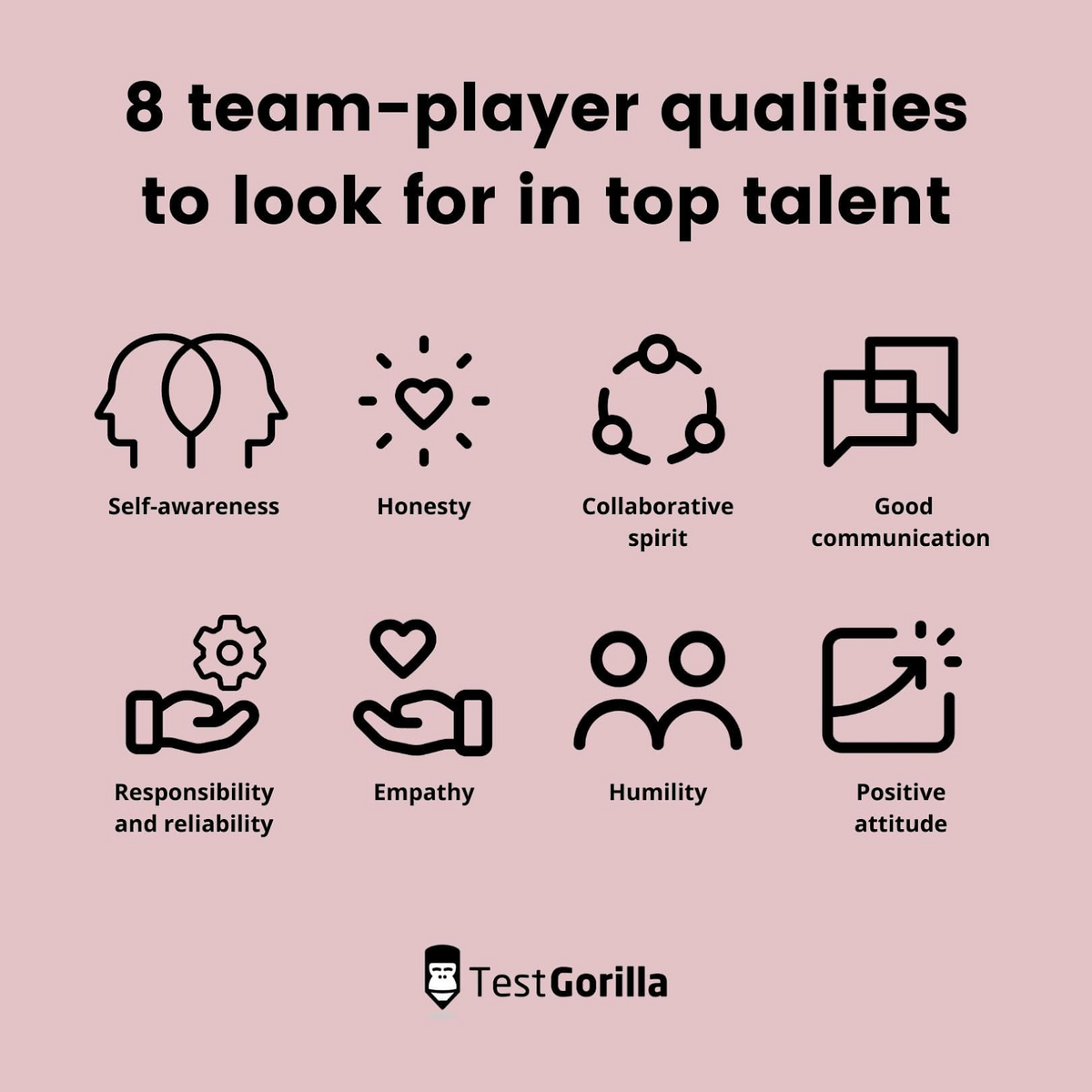
A team-oriented individual will know their position in the team and play to their strengths.
They will be committed to the group’s success and find ways to tackle issues together.
Great interpersonal skills
Going hand-in-hand with the need for a positive outlook on teamwork, the candidate should have excellent interpersonal skills.
These skills, often referred to as people skills, are used while interacting with others.
Interpersonal skills are a group of soft skills and consist of the following:
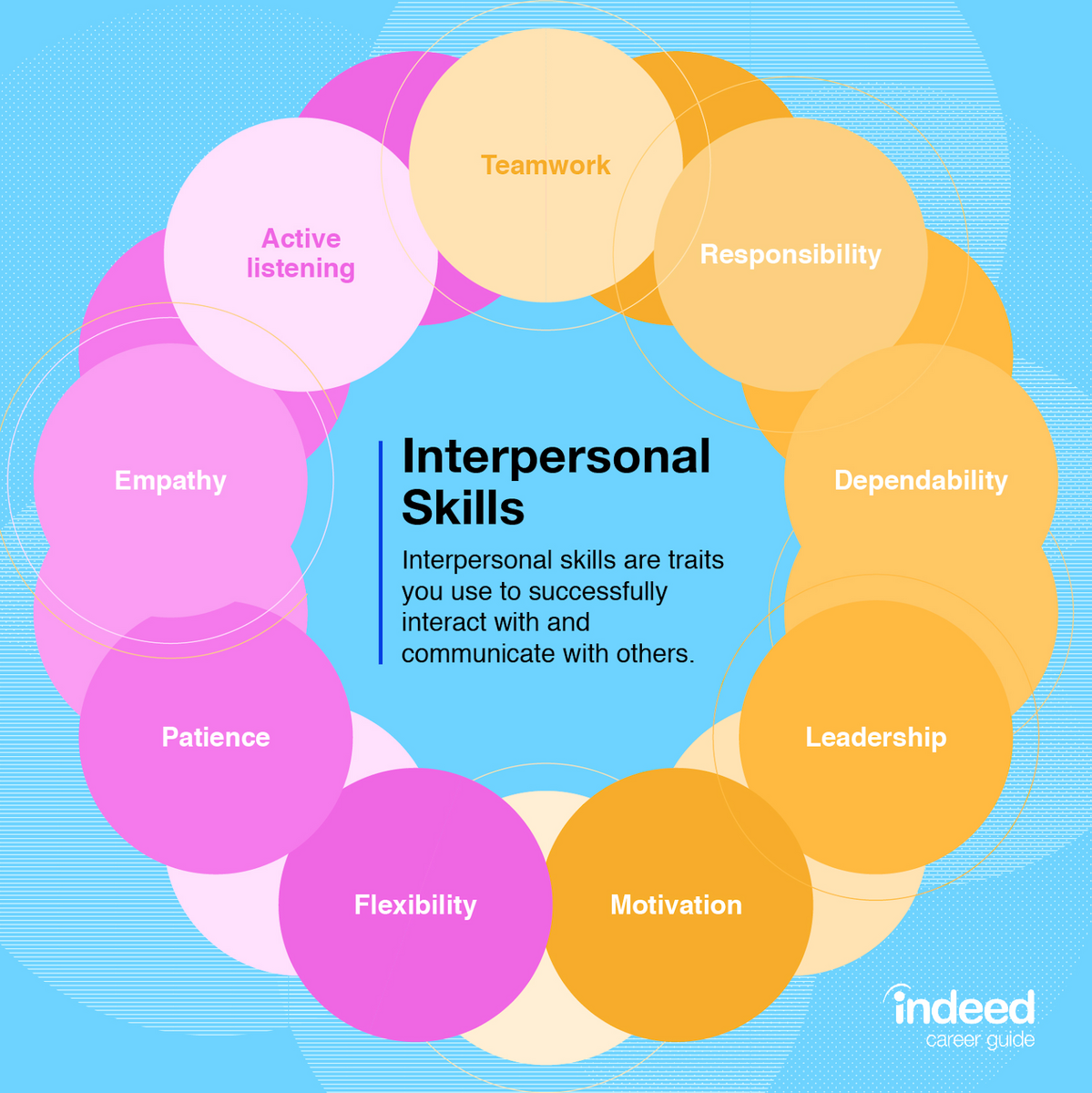
A candidate with these traits will appear friendly and empathetic.
They will be nice to talk to, generally know how to smooth out any conflicts, and work productively with others.
These skills will allow developers to interact with teammates, clients, and managers effectively, helping develop solid relationships and maintain a pleasant working environment.
Ability to communicate effectively
One of the more critical interpersonal skills is effective communication.
Software developers should know how to clearly and concisely communicate their ideas to others.
Effective communication consists of several elements.
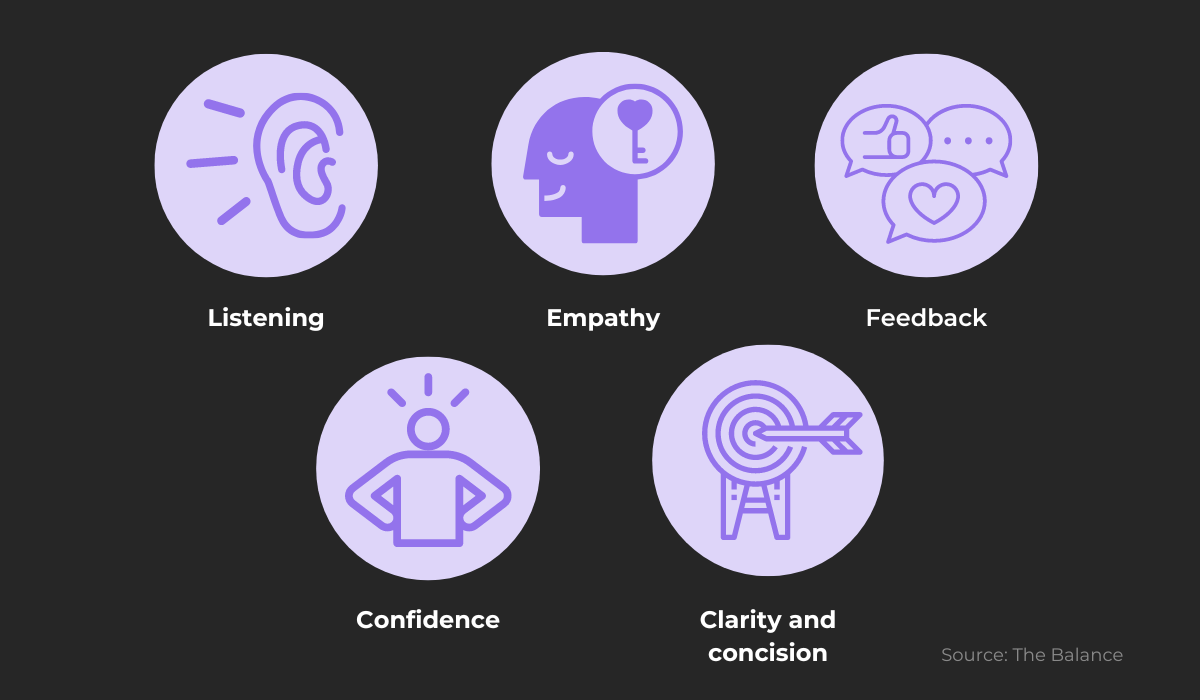
A developer with excellent communication skills will be more apt at sending and receiving vital information, ensuring everyone is on the same page and avoiding delays and errors due to poor communication.
Jason Schwartz, product director at Spotify, says:
Many technically proficient engineers are not considered great because they can’t communicate their ideas.
When considering a candidate, you can ask whether they can effectively explain themselves to laypeople and skilled developers.
If the answer is yes, you may have found a great asset to your team.
Conclusion
We hope the qualities we covered in this article will make your hiring process more straightforward.
This list is not a comprehensive one.
Instead, these are only a few traits we’ve determined a good software developer should possess.
You might want to use the list as a helpful guideline to find the best candidates and make more informed hiring decisions.
Don’t expect a candidate to possess all these qualities—find out what you and your team need and make compromises accordingly.





